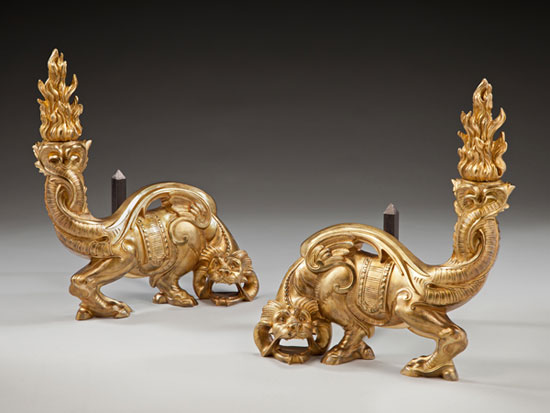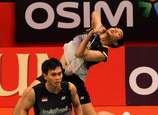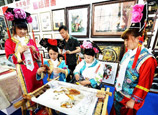
 |
| A Napoleon III gilt bronze chenet (circa 1870). Photo provided to China Daily |
As for the 150 or so Chinese collectors and buyers who attended, there appeared to be a lot of curiosity to see if the experiment worked and would be continued.
Du Rongrong, a buyer from Beijing, says she intended to buy a few relatively inexpensive items and learn more about the market price of Western furniture.
"I believe the free port auction pattern will be replicated in the future because it is a neat way of sidestepping China's present laws," she says.
Former lawyer and collector Wang Shi, from Jiangxi province's Jingdezhen, says the free-port auction idea was a bright one but did not entirely overcome custom duty issues.
"While I hope China's auction market becomes more open, one of the biggest headaches for collectors is the tax issue, as buyers have to pay duties of up to 27 percent of the price."
He adds that Huachen's reputation and the involvement of Triple-A gave him confidence in the authenticity of the items, which is part of the reason the two partnered at the end of 2012.
The other principal mover behind this collaboration is Jiang Qiqi, CEO of the Beijing-based Epai Live, which she describes as the "Wechat and Taobao of the auction world".
Jiang says the Chinese market has three principal problems - transparency, custom duties and taxes, and trust among buyers.
"What we want to import from Triple-A is the credibility factor and to further build Epai Live into a bilingual system on which foreigners have the confidence to buy and to ensure that payments really are made," Jiang says.


















 People cool off in water from orange-coded alert of heat in Chongqing
People cool off in water from orange-coded alert of heat in Chongqing


![]()
